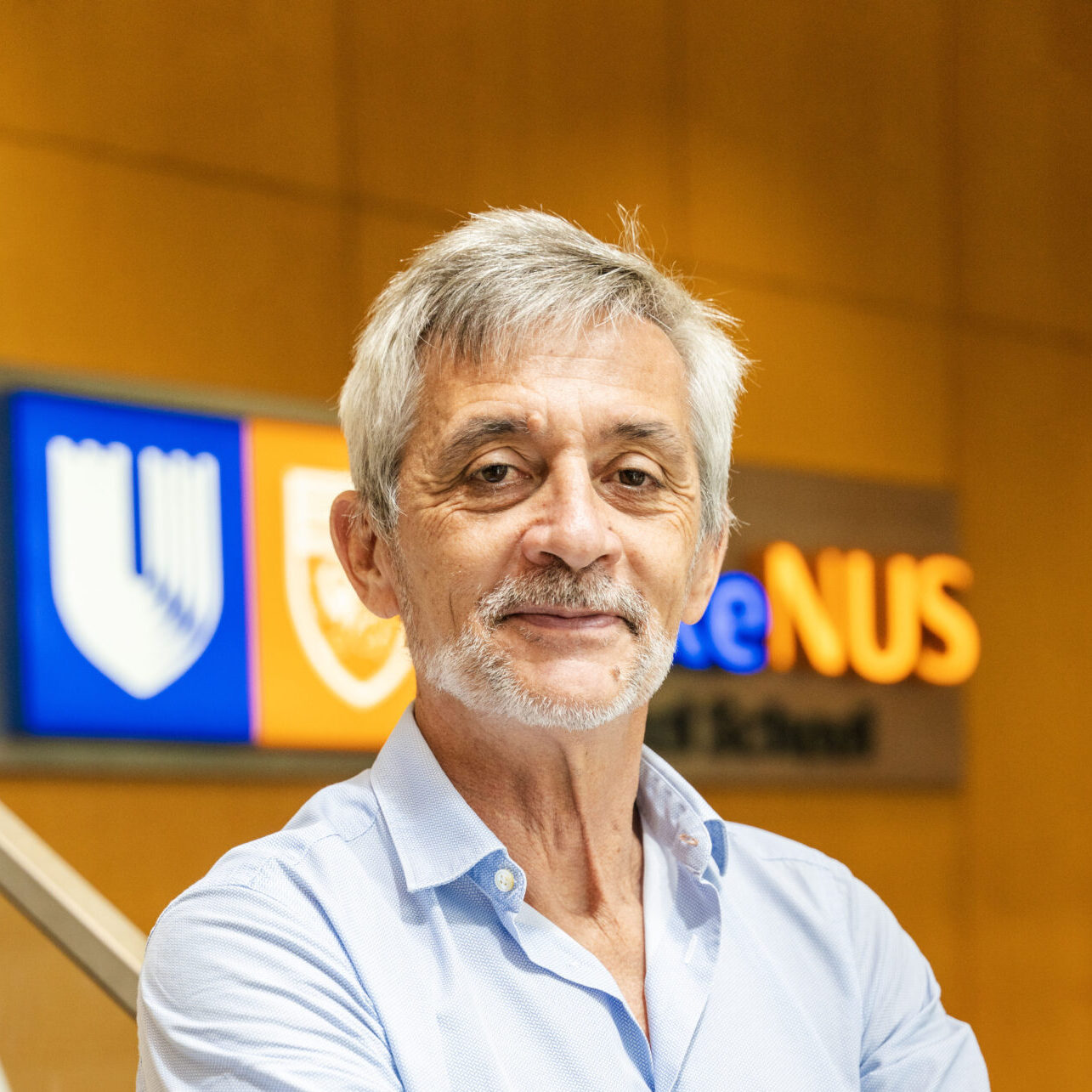
Antonio Bertoletti, M.D.
Professor,
Duke-NUS Graduate Medical School
Division Emerging Infectious Diseases, Singapore
Tel: + 65 6601 3574
Email: antonio@duke-nus.edu.sg
I trained as a specialist in Infectious Diseases and have always been interested in the immunological control of persistent viral infections, particularly Hepatitis B (HBV). During my research career, first in the USA (The Scripps Research Institute) and then in Italy (University of Parma), I was the first to characterize hepatitis B virus (HBV) specific human CD8 T cells in HBV infected patients (Proc. Natl. Acad. Sci. USA 1991 88: 10445), and to define the effect of HBV mutations on HBV-specific CTL function (Nature 1994 369: 407-J. Exp. Med. 1994 180: 933). I moved to London (University College of London) in 1997, where I pioneered the use of HLA-tetramers in HBV infected subjects and used them to characterize the role of HBV-specific T cells in viral control and disease pathogenesis (J. Exp. Med. 2000, 191: 1269, J. Exp. Med, 2002 195: 1089; J. Virol, 2004, 78;5707). In 2006, I moved to Singapore, motivated by the opportunity to build on our understanding of HBV infection, a worldwide serious health problem that is over-represented in Asia and became Director of Infection and Immunity Program at the Singapore Institute for Clinical Sciences (A*STAR) until 2013, after which I joined as a Professor in the Emerging Infectious Disease Programme at Duke-NUS Graduate Medical School in the same year.
Here, in addition to continuing the work on HBV pathogenesis demonstrating the impact of HBV antigen on the functionality of HBV-specific B and T cells (Salimazedh, JCI, Le Bert JHEP, Rivino JCI, Le Bert Gastroenterology), we were the first group to demonstrate the ability of T cells engineered with HBv-specific T cells to recognize not only HBv infected cells but also tumor cells with HBV-DNA integration (J. Hepatology) and utilize such T cells in patients for the treatment of primary and secondary HBV-related HCC (Tan et al Gastroenterology). The current research of the lab is focused on developing new immunological-based therapies (TCR-redirected T cells) for treating HBV chronic infection and Hepatocellular carcinoma and on developing novel immunological assays to integrate HBV-specific T cell profile in the clinical management of chronic HBV patients. In addition, after the start of the COVID-19 pandemic, our laboratory has been also actively involved in the characterization of SARS-COV2 specific T cell immune response in COVID-19 and SARS convalescent and healthy individuals both in the blood and in the primary airways. In recognition of my contribution to viral hepatitis research, I was awarded the prestigious European Association Study of the Liver, Carriere Award in 2023.
Positions:
• 1987-1989 Resident in the Department of Infectious Diseases, University of Parma, Italy
• 1989-1991 Research fellow in the laboratory of Dr. Frank Chisari, Scripps Research Institute
• 1991-1996 Assistant, Department of Infectious Diseases, Main Hospital of Parma, Parma, Italy
• 1996-1997 Senior Immunologist, MRC Laboratories, Fajara, The Gambia
• 1998-2001 Senior Lecturer in Medicine, Institute of Hepatology, UCLMS, London
• 2001-2006 Reader in Experimental Hepatology, Institute of Hepatology, UCLMS, London
• 2006-2008 Principal Investigator, Singapore Institute Clinical Sciences, Agency for Science, Technology and Research (ASTAR), Singapore
• 2008-2013 Director Infection and Immunity Program, SICS, ASTAR, Singapore
• 2013-present Professor, Program of Emerging Viral Diseases, Duke-Nus Medical School, Singapore 2013-present Research Director, Viral Hepatitis Unit, Singapore Institute for Clinical Science, A*STAR, Singapore
